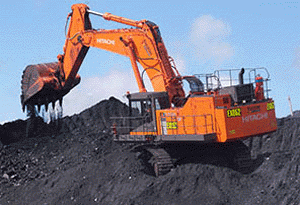
By Gareth Vaughan
TSB Bank is "optimistic" about the future of its exposure to Solid Energy, but isn't ruling out the possibility of taking another haircut.
Last October TSB converted $13.757 million worth of Solid Energy bonds into redeemable preference shares as part of debt write-down at the beleaguered state owned enterprise. This loan impairment saw TSB's annual impairment losses balloon more than fivefold to $11.492 million for the year to March 31, from just $2.14 million the previous year. This in turn pushed TSB's annual net profit after tax down almost $3.2 million, or 6%, to $49.9 million.
CEO Kevin Murphy acknowledged it was possible TSB could take another hit from Solid Energy.
"Ultimately that may be an outcome but we hope it's not," Murphy told interest.co.nz. "We're optimistic that the processes that have been put in place (at Solid Energy) with the new structures, the new management and board, the governance structures that are in place, that they will help in terms of righting the company."
"A lot of things are obviously dependent on the coal price and the exchange rate and where those sit out into the future, and there are differing viewpoints in terms of that. So we have to remain optimistic in terms of both of those, that there will be some improvement that will allow the company, that has undertaken significant restructuring, to try and bring the business back to a profitable situation."
"But there are certainly risks out there, and we're well aware of that. We will be reviewing our position at the appropriate junction, which is at the time of the next disclosure statement, and we'll see how we feel in terms of our position then," Murphy added.
Other banks still owed north of $300 mln after $75 mln haircut
In its annual report TSB says its remaining $53.7 million worth of Solid Energy bonds are performing because they continue to meet their contractual arrangements with interest being paid.
"(But) the ability of Solid Energy to continue to meet the contractual repayments terms of the bonds over time is contingent upon successful restructuring of the core operations of the business, the outcome of which is currently uncertain," TSB says.
A further hit to TSB's bond holding would spell bad news for the SOE's unsecured lenders too, which include ANZ, BNZ, Commonwealth Bank of Australia, Westpac and the Bank of Tokyo-Mitsubishi. They also saw a chunk of their loans impaired and converted to redeemable preference shares last October, resulting in a combined $75 million haircut for the banks. The Bank of Tokyo-Mitsubishi unsuccessfully tried to block the debt restructure, which was supported by the other banks, in the High Court. It had $16.3 million of its $80 million loan converted into preference shares.
ANZ had $8.2 million of its $40 million of loans converted to redeemable preference shares; BNZ had $16.3 million of $80 million converted; CBA had $9.2 million converted with another $62.1 million of loans outstanding; and Westpac had $11.3 million of $96.5 million converted. That leaves Solid Energy with TSB's $53.7 million of bonds, and $306.5 million of loans from the other five banks.
In late February the SOE's interim results showed a net loss after tax of $40.9 million. Solid Energy said then its financial recovery was likely to be "prolonged," and was dependent on a number of factors including continuing improvement in its business performance and higher prices in international coal markets. The strength of the New Zealand dollar, meanwhile, was continuing to adversely impact profitability.
In March Solid Energy named Australian mining executive Dan Clifford as its new CEO. Clifford has worked for Anglo Coal and BHP Billiton in technical, operations and regional management roles, successfully restructuring mining operations to be more efficient and economic, Solid Energy says.
Spotlight put on 'the whole issue of an SOE and what that actually means'
In its annual Financial Institutions Performance Survey KPMG described the Solid Energy debt restructure as "one of the most significant banking sector events of recent years", given it it appears to have changed a long-standing assumption that a SOE has an implicit government guarantee.
Murphy said the Solid Energy debt restructure had been a difficult process, putting the spotlight on "the whole issue of an SOE and what that actually means."
"And I think that has been a learning curve for banks and the market and the public as a whole. And rightly it brings into focus the whole risk around investment," said Murphy.
"It's a significant part of our SOE portfolio but it's a diverse mix. We make sure we have policies and limits in terms of specific institutions that we can invest with. We're very mindful of making sure that we're not over exposed to a particular entity," added Murphy.
"We still remain confident that SOEs are a place where the bank should be looking to invest."
TSB's annual report shows $898.336 million worth of investments in SOEs, utility companies, commercial paper and bonds of New Zealand corporates. That's up $38 million year-on-year. Murphy wouldn't name other SOEs TSB is exposed to.
As of March 31 TSB's total assets stood at just under $5.682 billion, down just over $2 million from December 31. Total liabilities were down about $8.8 million to $$5.204 billion.
This is an abridged version of this article. The full version was published in our email for paying subscribers. See here for more details and how to subscribe.

We welcome your comments below. If you are not already registered, please register to comment
Remember we welcome robust, respectful and insightful debate. We don't welcome abusive or defamatory comments and will de-register those repeatedly making such comments. Our current comment policy is here.